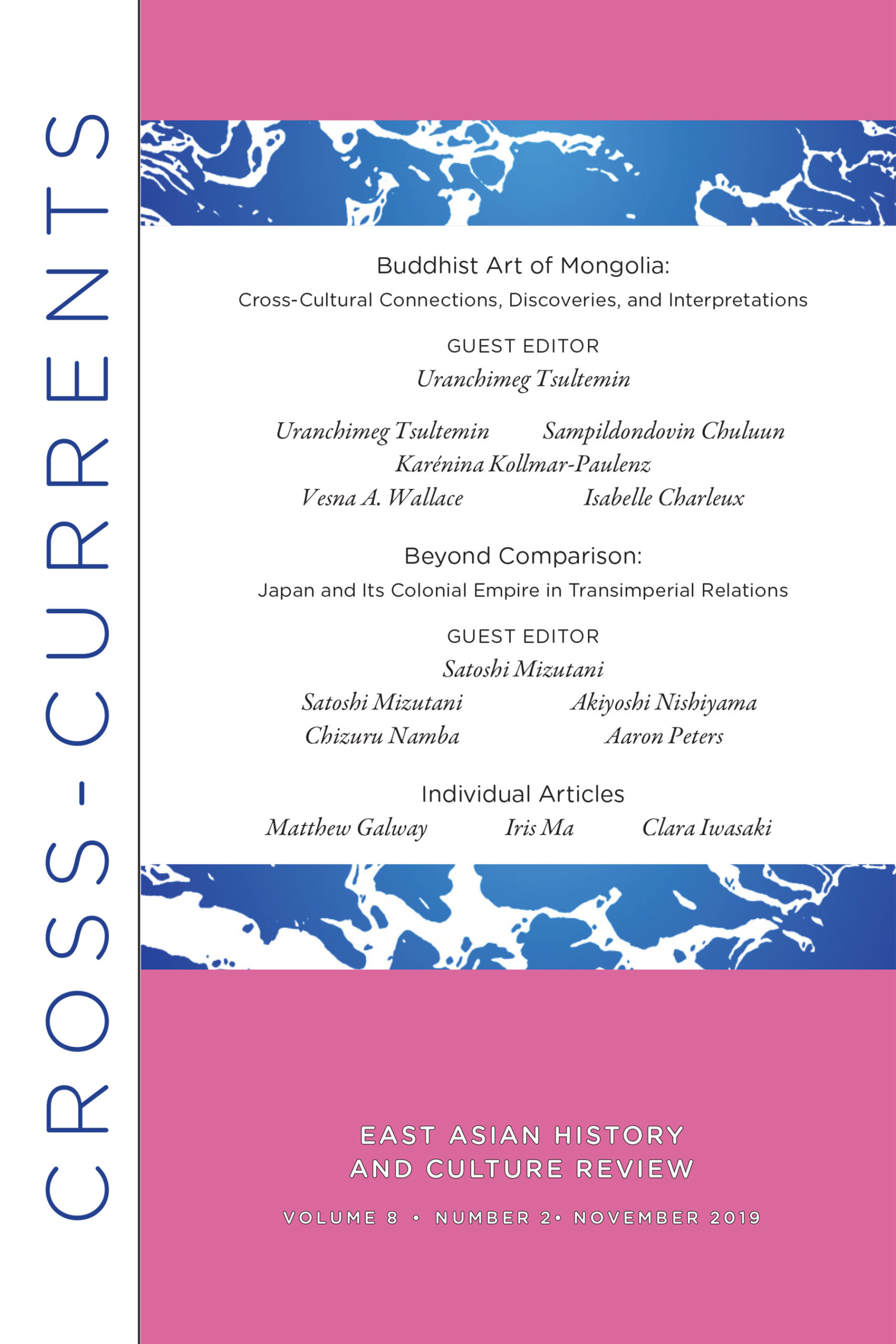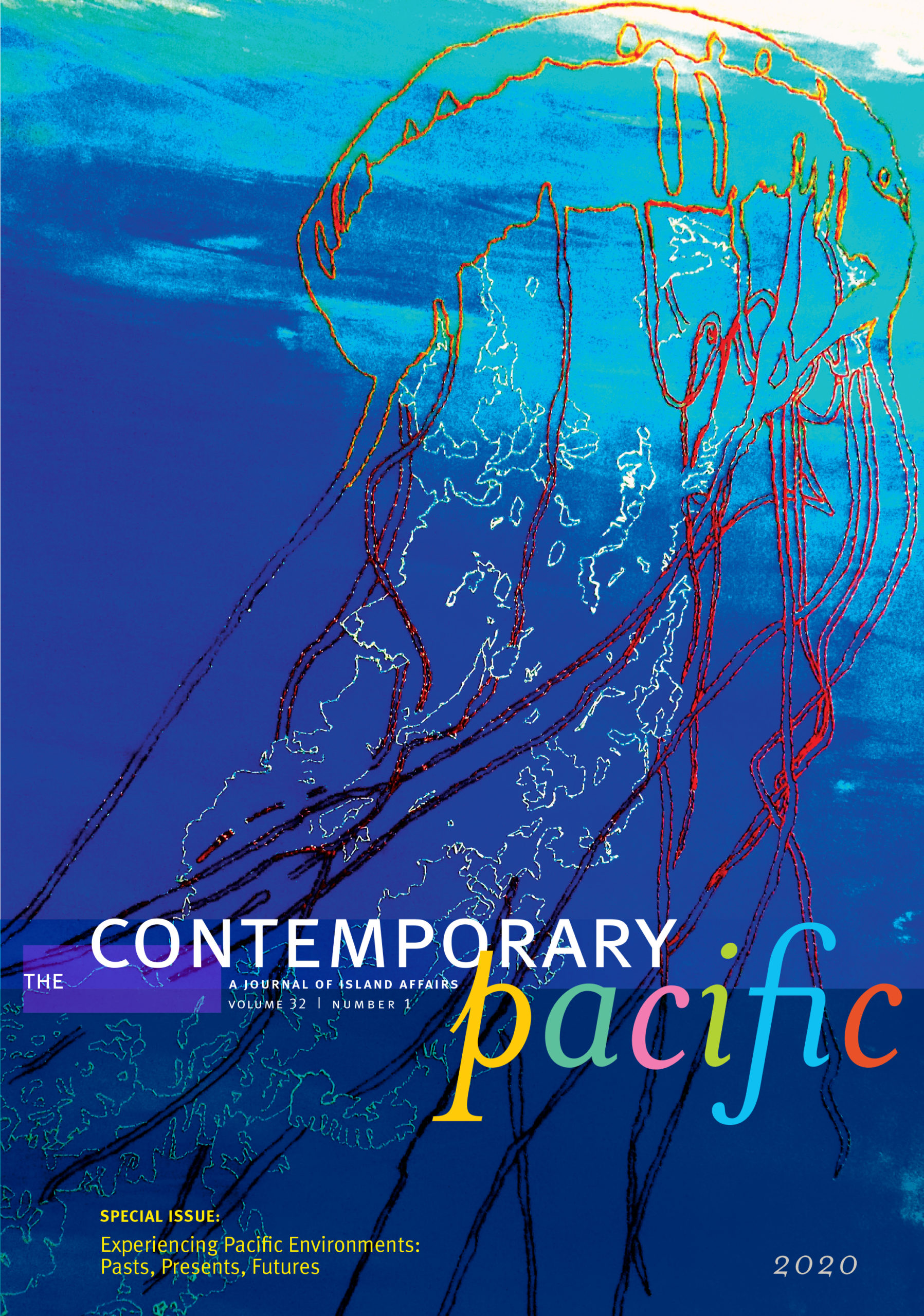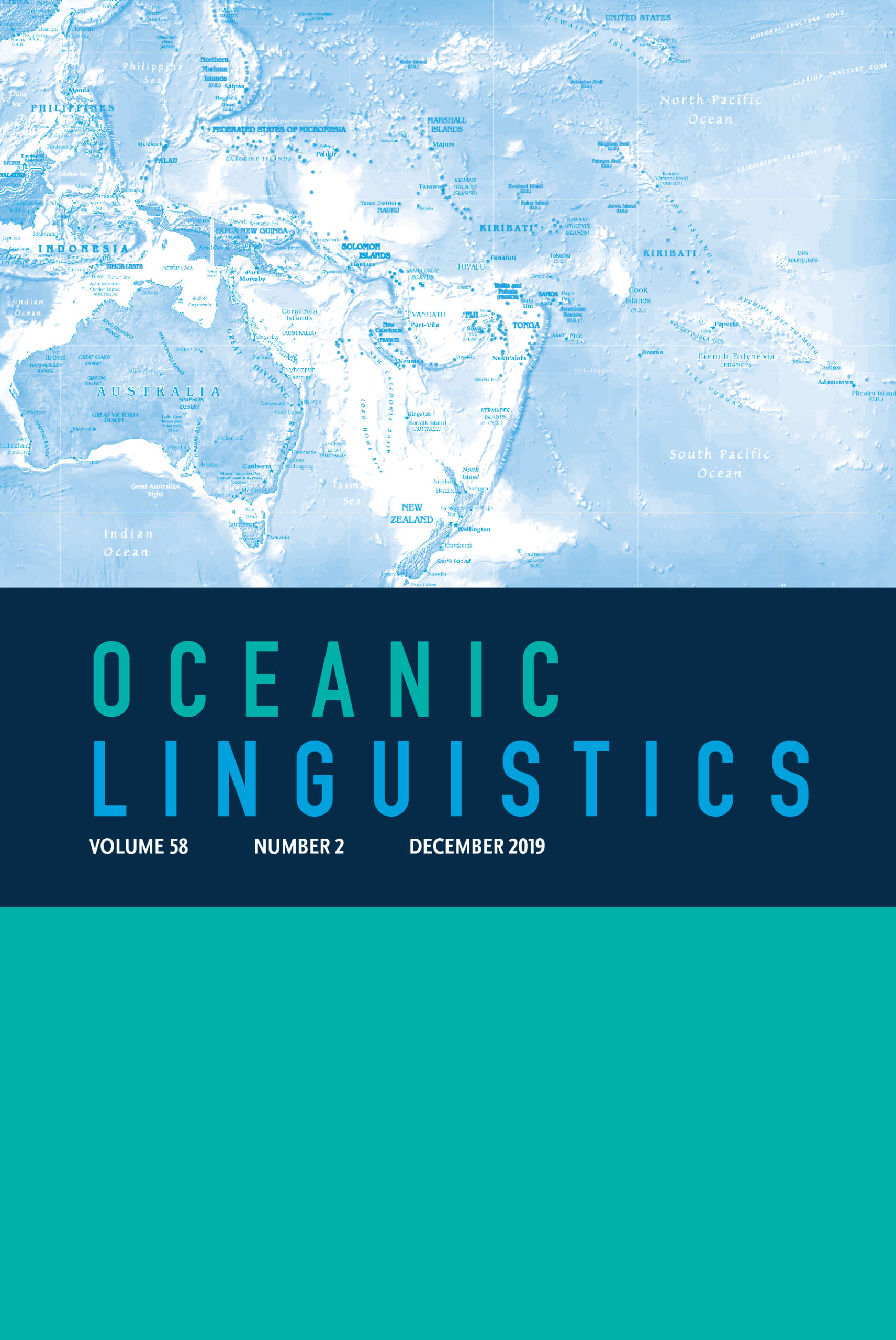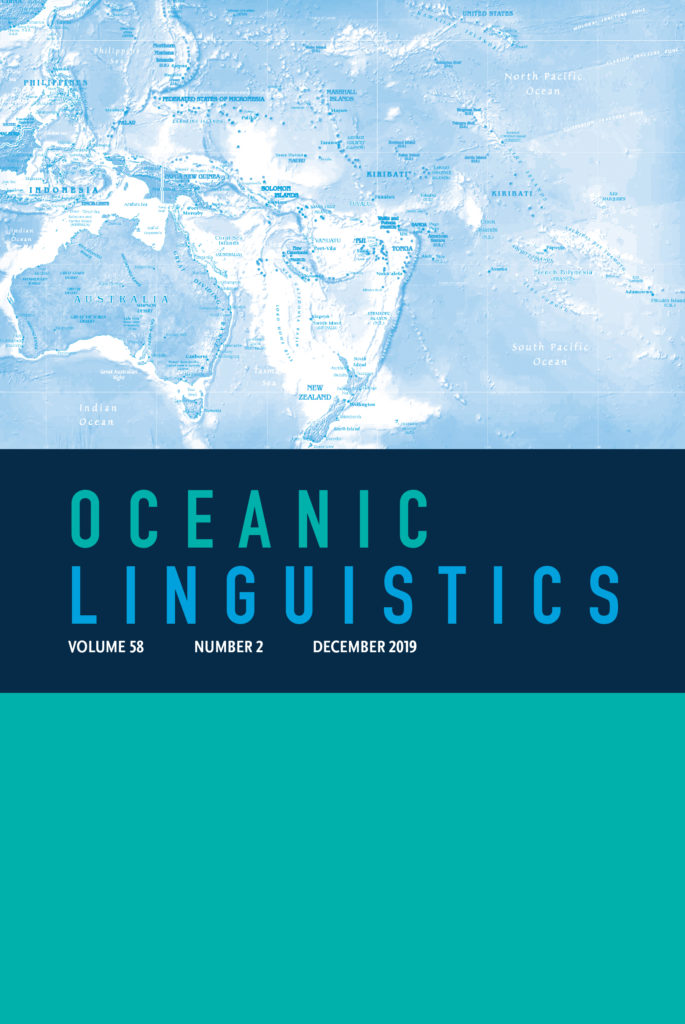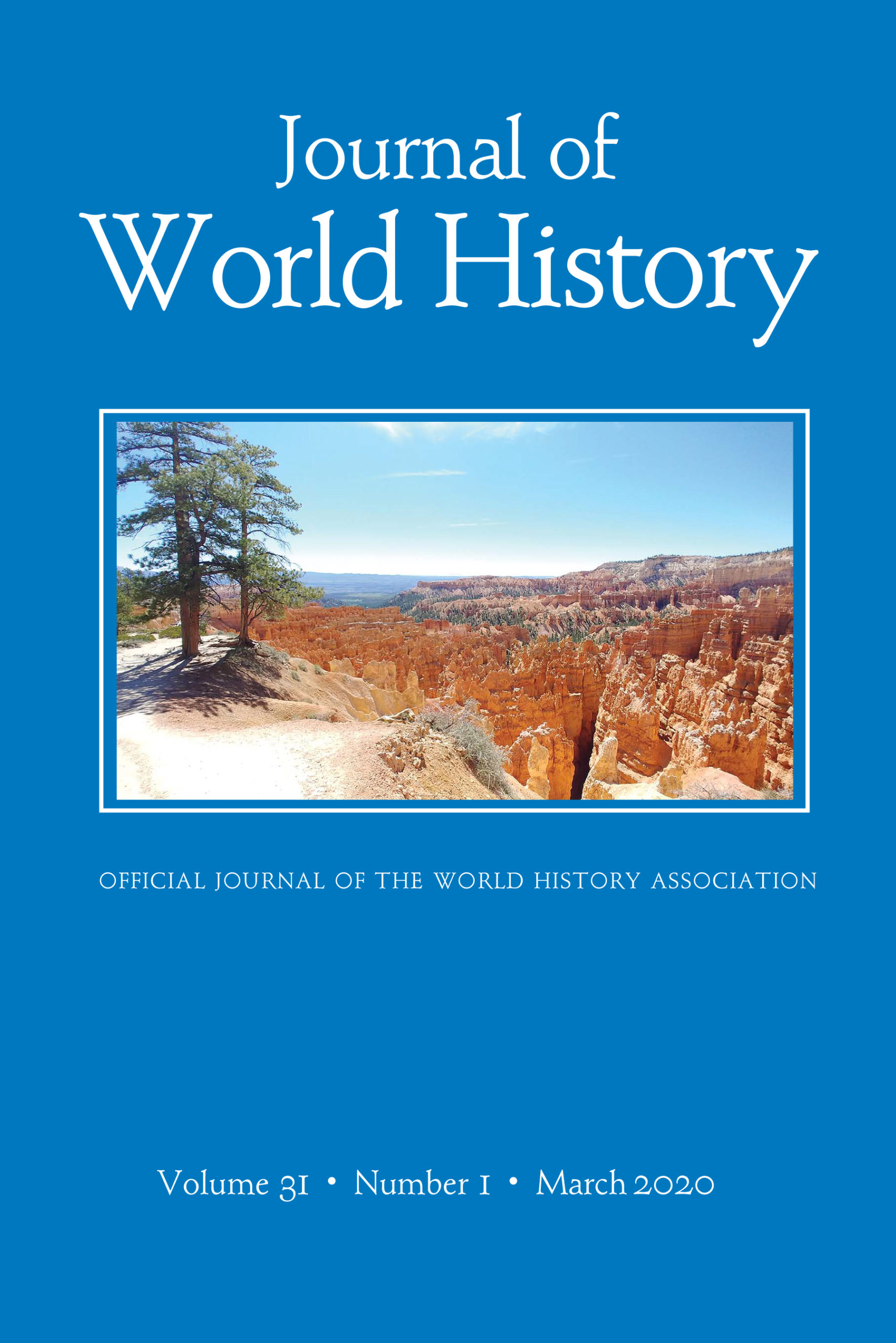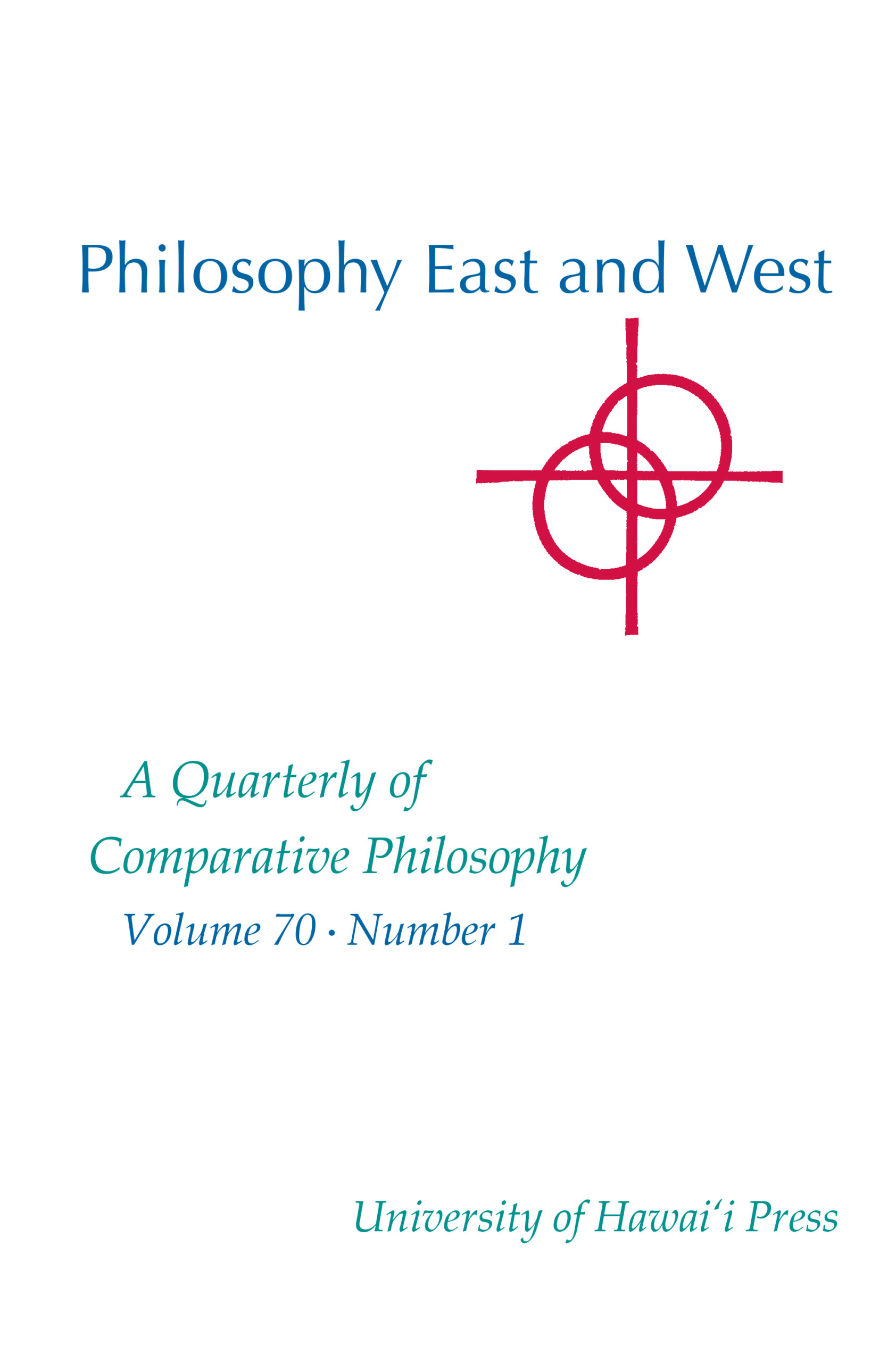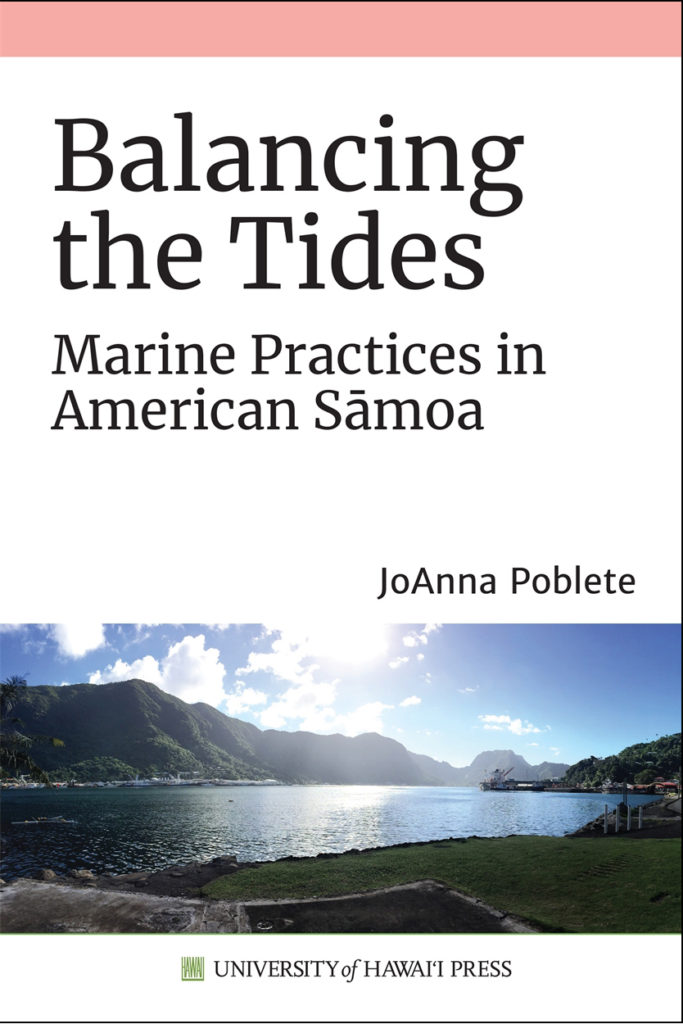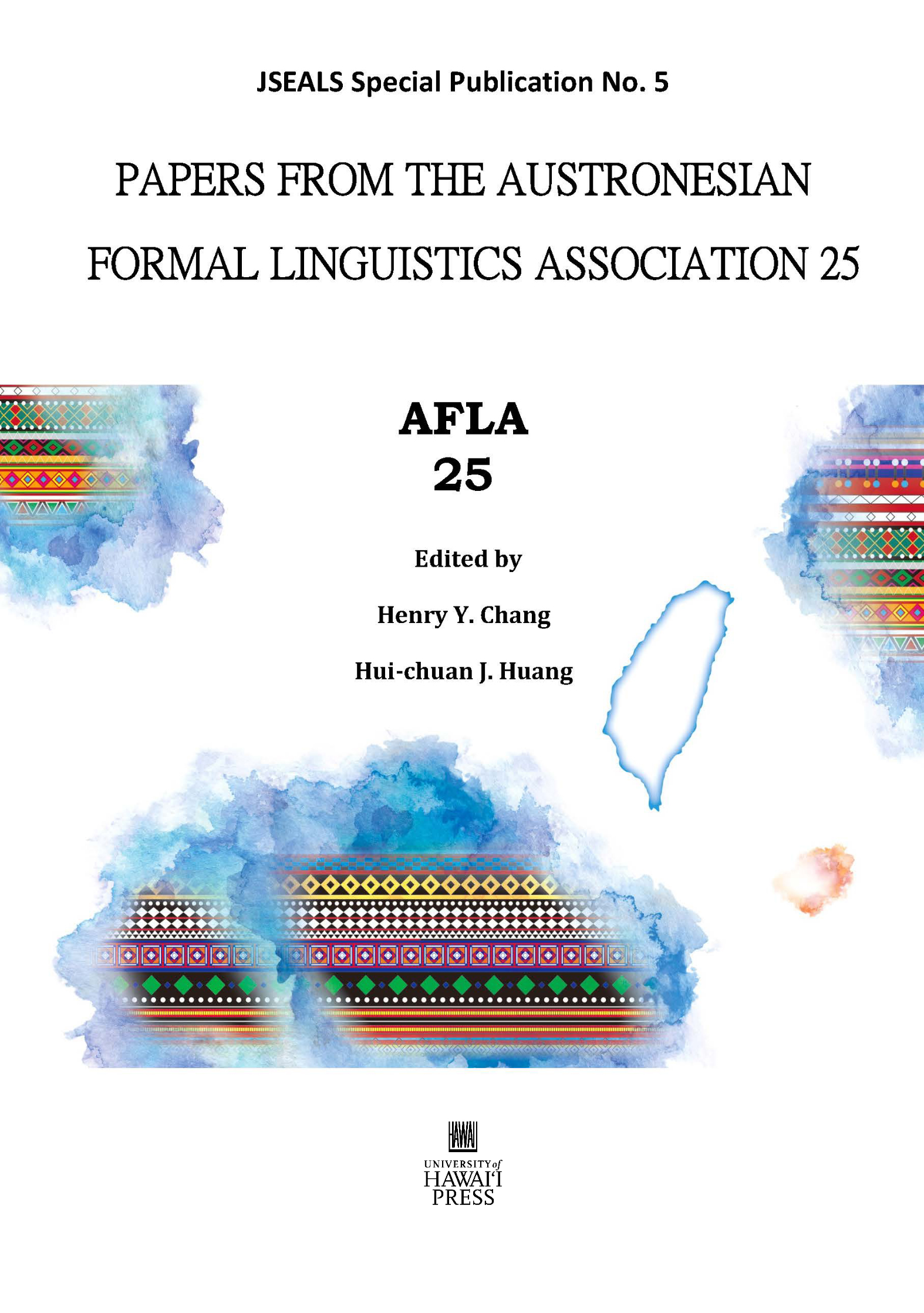University of Hawai‘i Press is offering discounts up to 40% off on selected Hawaiian Studies titles from May 1 through May 8th, 2020 May 11th, 2020 (Sale Extended!). (Download PDF)
News and Events
Cross-Currents – Limited Time Special Offer – 50% Off
Cross-Currents: East Asian History and Culture Review’s next issue—volume 9, issue 1—will be its last. Limited print copies of Cross-Currents are now available for a 50% discount through June 1.
Since 2012, Cross-Currents has offered readers up-to-date research findings, emerging trends, and cutting-edge perspectives concerning East Asian history and culture from scholars in both English-speaking and Asian language-speaking academic communities.
A joint enterprise of the Research Institute of Korean Studies (RIKS) at Korea University and the Institute of East Asian Studies (IEAS) at the University of California, Berkeley, Cross-Currents has balanced issues traditionally addressed by Western humanities and social science journals with issues of immediate concern to scholars in China, Japan, Korea, and Vietnam.
Most issues include multiple special sections, guest edited by scholars in the field. The following issues are typically $15.00 per issue, but are now available for $7.50. Postage is included for mailing addresses within the U.S. For shipping outside the U.S., please add $5.00 per issue.
Complete Cross-Currents Set (17 issues)
A complete set of 17 issues may be purchased for $115 ($255 value). Contact [email protected] to order and to inquire about international shipping options.
For individual issues, please click on the links below.
Volume 9, Number 1, May 2020 (Forthcoming)
Global Island: Taiwan and the World + Individual Submissions
Volume 8, Number 2, November 2019
Buddhist Art of Mongolia: Cross-Cultural Connections, Discoveries, and Interpretations
Volume 8, Number 1, May 2019
Diasporic Art and Korean Identity
Air-Water-Land-Human: Interdisciplinary Approaches to Health and Environment
Volume 7, Number 2, November 2018
Recent Research on North and South Korea
Writing Revolution Across Northeast Asia
Volume 7, Number 1, May 2018
Binding Maritime China: Control, Evasion, and Interloping
Volume 6, Number 2, November 2017
Maps and Their Contexts: Reflections on Cartography and Culture in Premodern East Asia
Naming Modernity: Rebranding and Neologisms during China’s Interwar Global Moment in Eastern Asia
Volume 6, Number 1, May 2017
Cartographic Anxieties
Recent Research on China, Korea and Japan
Volume 5, Number 2, November 2016
Frontier Tibet: Trade and Boundaries of Authority in Kham
Mapping Vietnameseness
Volume 5, Number 1, May 2016
Individual Submissions
Volume 4, Number 2, November 2015
Governing Marriage Migrations: Perspectives from Mainland China and Taiwan
Rethinking Business History in Modern China
Volume 4, Number 1, May 2015
(De)Memorializing the Korean War: A Critical Intervention
Recent Research on China
Volume 3, Number 2, November 2014
Stories and Histories from the China-Vietnam Border
Islam in China/China in Islam
Volume 3, Number 1, May 2014
The Globalization of K-pop: Local and Transnational Articulations of South Korean Popular Music
New Research on Colonial Korea
Volume 2, Number 2, November 2013
Urban Chinese Living
Law, Politics, and Society in Republican China
Bordering China: Modernity and Sustainability
Volume 2, Number 1, May 2013
Transcolonial Film Coproductions in the Japanese Empire: Antinomies in the Colonial Archive
Volume 1, Number 2, November 2012
Mediating Chineseness in Cambodia
Volume 1, Number 1, May 2012
Territoriality and Space Production in China
The Past and Future of the Gaihōzu Japanese Imperial Maps
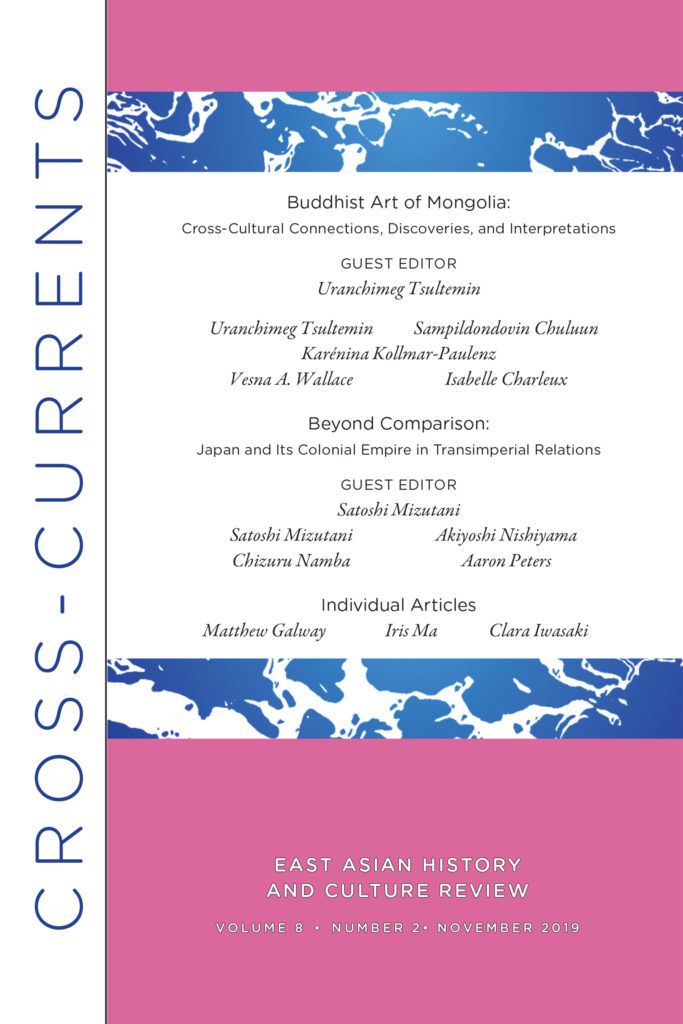
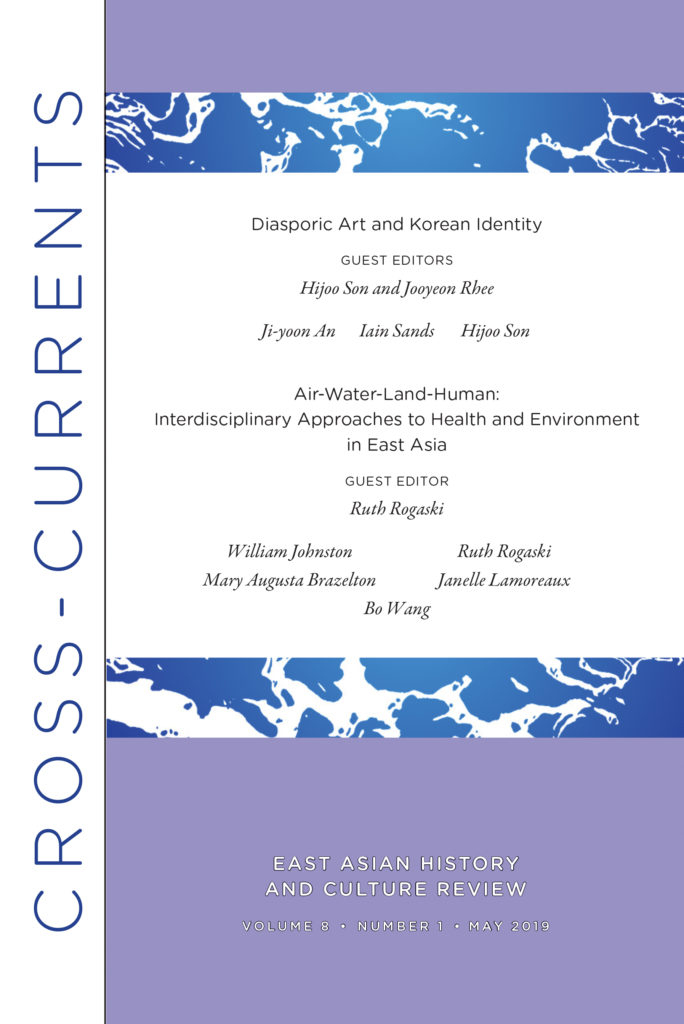
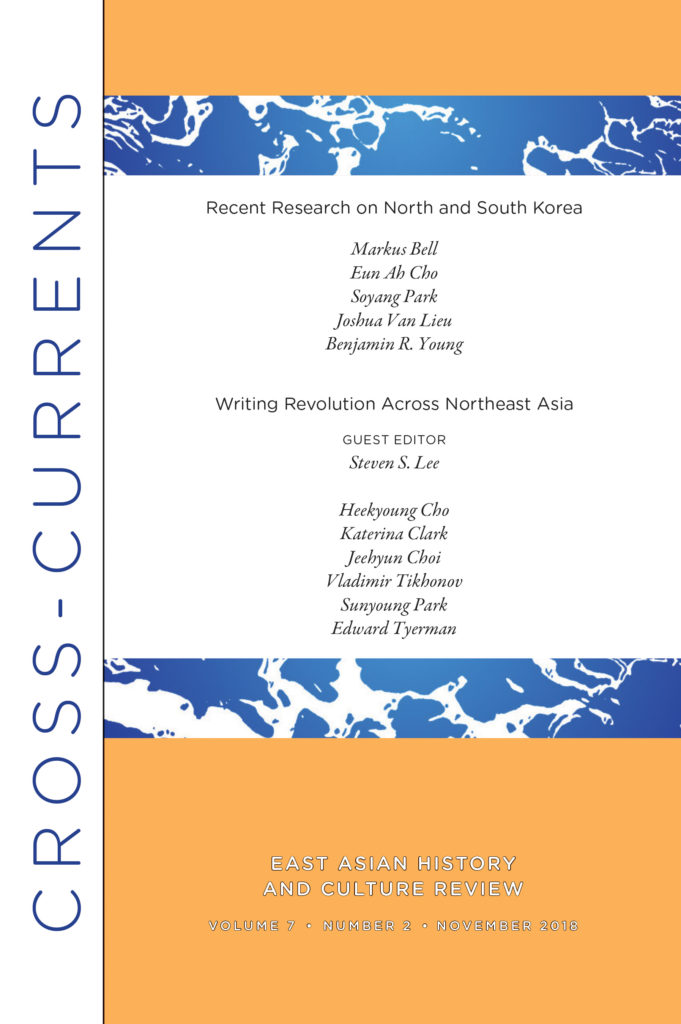
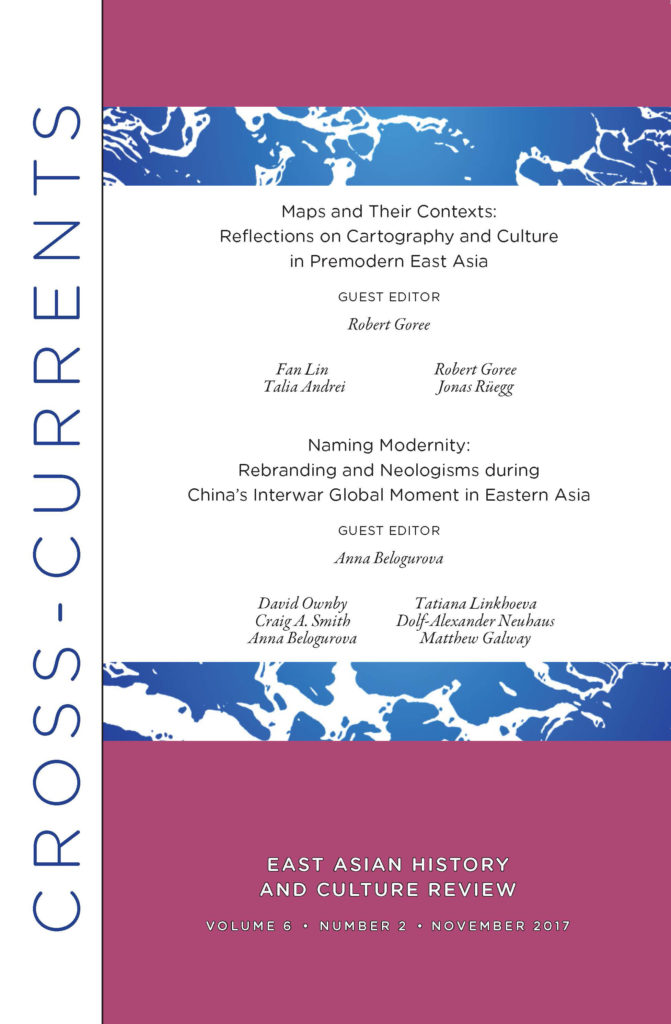
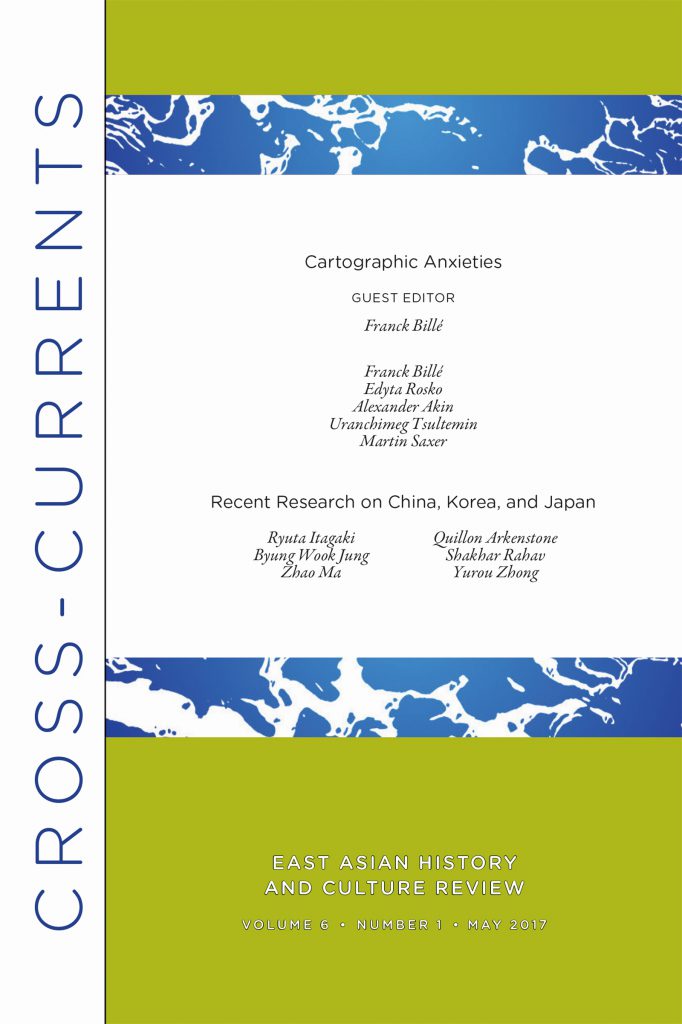
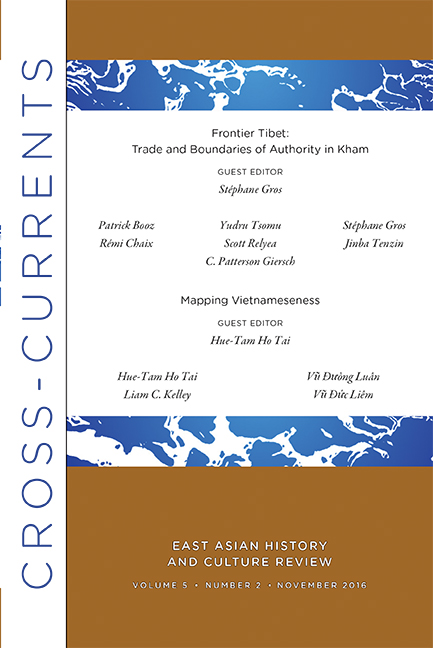
The Contemporary Pacific, vol. 32 no. 1 (2020)

This issue of The Contemporary Pacific is a special issue, “Experiencing Pacific Environments: Pasts, Presents, Futures,” guest edited by Eveline Dürr, Philipp Schorch, and Sina Emde, and features the art of Joy Lehuanani Enomoto.
Read the special issue introduction free on Project MUSE.
Articles
Experiencing Pacific Environments:: Pasts, Presents, Futures
Sina Emde, Eveline Dürr, Philipp Schorch
Collaborative Strategies for Re-Enhancing Hapū Connections to Lands and Making Changes with Our Climate
Huhana Smith
One Thousand and One Coconuts: Growing Memories in Southern New Guinea
Nicholas Evans
The Lizard in the Volcano: Narratives of the Kuwae Eruption
Chris Ballard
The Capitalism of Chambri Cosmology: The 2017 Sir Raymond Firth Memorial Lecture
Deborah Gewertz, Frederick Errington
Nesor Annim, Niteikapar (Good Morning, Cardinal Honeyeater): Indigenous Reflections on Micronesian Women and the Environment
Myjolynne Marie Kim
Afterword: “I Am the River, and the River Is Me”
Dame Anne Salmond
Resources
Teaching Oceania: Creating Pedagogical Resources for Undergraduates in Pacific Studies
Monica C LaBriola, Julianne Walsh
Political Reviews
Micronesia in Review: Issues and Events, 1 July 2018 to 30 June 2019
Gonzaga Puas
Guam
Elizabeth (Isa) Ua Ceallaigh Bowman, Michael Lujan Bevacqua, Tiara Na’Puti
Marshall Islands
Monica C Labriola
Nauru
Nic Maclellan
Northern Mariana Islands
Zaldy Dandan
Polynesia in Review: Issues and Events, 1 July 2018 to 30 June 2019
Lorenz Gonschor
Māori Issues
Margaret Mutu
Niue
Salote Talagi
Pitcairn
Peter Clegg
Rapa Nui
Forrest Wade Young
Books and Media Reviews
Oceania (review)
Safua Akeli Amaama
Kaiāulu: Gathering Tides by Mehana Blaich Vaughan (review)
Mililani Ganivet
Ē Luku Wale Ē: Devastation upon Devastation by Mark Hamasaki and Kapulani Landgraf (review)
Halena Kapuni-Reynolds
Island Time: New Zealand’s Pacific Futures by Damon Salesa (review)
Masami Tsujita Levi
The Bounty from the Beach: Cross-Cultural and Cross-Disciplinary Essays ed. by Sylvie Largeaud-Ortega (review)
Vehia Wheeler
Breaking the Shell: Voyaging from Nuclear Refugees to People of the Sea in the Marshall Islands by Joseph H Genz (review)
M Blake Fisher
Pacific Alternatives: Cultural Politics in Contemporary Oceania ed. by Edvard Hviding and Geoffrey White (review)
Cheng-Cheng Li
Dispossession and the Environment: Rhetoric and Inequality in Papua New Guinea by Paige West (review)
Foley Pfalzgraf
Pacific Futures: Past and Present ed. by Warwick Anderson et al. (review)
Owen Jennings
Tatau: A History of Sāmoan Tattooing by Sean Mallon and Sébastien Galliot (review)
Kristina Togafau
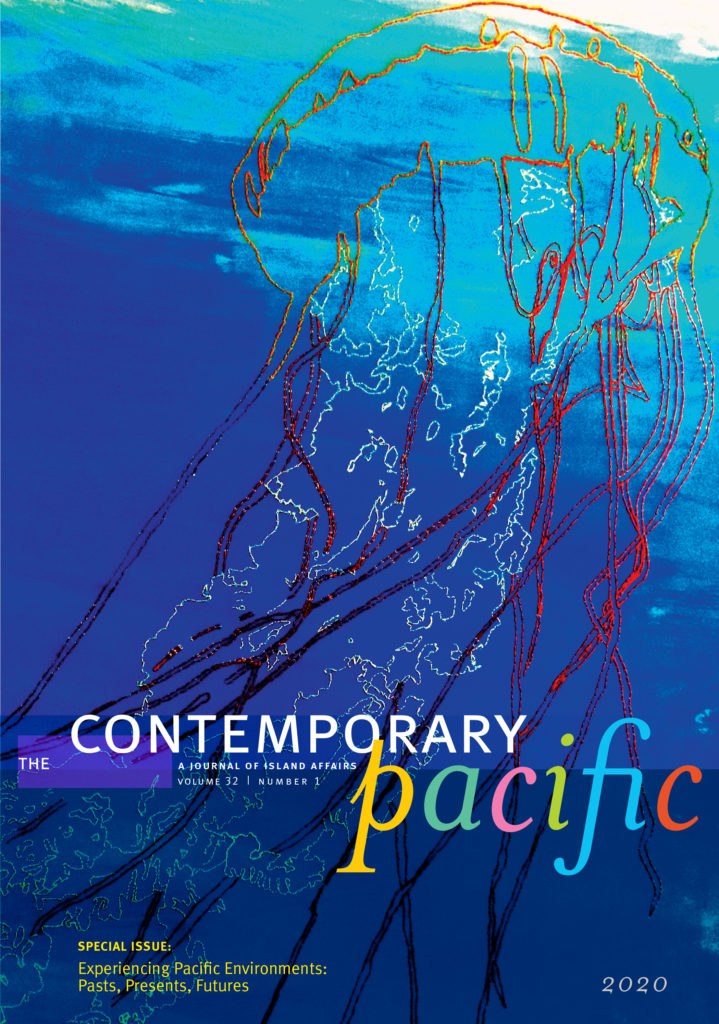
Gardening Sale 2020
Spring is here! University of Hawai‘i Press is offering discounts of up to 50% off on select Gardening titles from April 15 through April 30. Full list of sale titles below (Download PDF):
Gardening2020.pdfAsian-American Studies Sale 2020
University of Hawai‘i Press is having a special sale on a wide range of titles covering the experience of Asian Americans. Save 40% on select titles from April 5 – 20, 2020. Full list of sale titles below (Download PDF):
AsianAmericanStudies2020.pdfOceanic Linguistics, vol. 58 no. 2 (2019)
The new issue of Oceanic Linguistics includes the following scholarly works.
Articles
The Resurrection of Proto-Philippines
Robert Blust
Functions of the Subanon mo-Prefix: Evidence from Paradigms and Argument Structure
Bryn Hauk
The Bilabial-to-Linguolabial Shift in Southern Oceanic: A Subgrouping Diagnostic?
John Lynch
Jespersen in the Reef Islands: Single versus Bipartite Negation in Äiwoo
Giovanni Roversi, Åshild Næss
A Reconstruction of Proto-Segai-Modang
Alexander D. Smith
Colloquial Malay Discourse Particle punya as a Modal Evidential
Hooi Ling Soh
Squib
Dual *kita in the History of East Barito Languages
Alexander Adelaar
Book Reviews
101 problems and solutions in historical linguistics: A workbook by Robert Blust (review)
Claire Bowern, Rikker Dockum
The languages and linguistics of the New Guinea area: A comprehensive guide ed. by Bill Palmer (review)
Antoinette Schapper
Asian Studies Sale 2020
SALE IS EXTENDED THROUGH APRIL 30, 2020! University of Hawai‘i Press is having a special sale on a wide range of titles covering the culture, history, and languages of Asia. Save 20% – 40% off from March 16 – 31, 2020. Download the list of offered titles below:
AsianStudies2020.pdfChina Review International Vol. 25 No. 1 (2018)
Volume 25 Number 1 of China Review International begins with one feature review and 23 more reviews of scholarly literature in Chinese Studies.
Featured Review:
When Fish Were Fish
Christopher Rea
Reviews:
Poetic Transformations: Eighteenth-Century Cultural Projects on the Mekong Plains by Claudine Ang (review)
Reviewed by Eric Henry
Worüber man nicht spricht: Tabus, Schweigen und Redeverbote in China ed. by Rüdiger Breuer and Heiner Roetz (review)
Reviewed by Anna Stecher
GMO China: How Global Debates Transformed China’s Agricultural Biotechnology Policies by Cong Cao (review)
Reviewed by Nancy N. Chen
Morality and Monastic Revival in Post-Mao Tibet by Jane E. Caple (review)
Reviewed by Nicole Willock
Qing Travelers to the Far West: Diplomacy and the Information Order in Late Imperial China by Jenny Huangfu Day (review)
Reviewed by Bradley Camp Davis
That Distant Country Next Door: Popular Japanese Perceptions of Mao’s China by Erik Esselstrom (review)
Reviewed by Lu Yan
Song King: Connecting People, Places, and Past in Contemporary China by Levi S. Gibbs (review)
Reviewed by Charlotte D’Evelyn
Farewell to the God of Plague: Chairman Mao’s Campaign to Deworm China by Miriam Gross (review)
Reviewed by Robert Peckham
The Silk Road Trap: How China’s Trade Ambitions Challenge Europe by Jonathan Holslag (review)
Reviewed by Min Ye
Efficacious Underworld: The Evolution of Ten Kings Paintings in Medieval China and Korea by Cheeyun Lilian Kwon (review)
Reviewed by Beatrix Mecsi
Becoming Bilingual in School and Home in Tibetan Areas of China: Stories of Struggle YiXi LaMuCuo (review)
Reviewed by Norbert Francis
Chinese Poetic Modernisms ed. by Paul Manfredi and Christopher Lupke (review)
Reviewed by Joseph R. Allen
Just a Song: Chinese Lyrics from the Eleventh and Early Twelfth Centuries by Stephen Owen (review)
Reviewed by Lanlan Kuang
China’s Chaplin: Comic Stories and Farces by Xu Zhuodai (review)
Reviewed by Zheyu Wei
Afterlives of Chinese Communism: Political Concepts from Mao to Xi ed. by Christian Sorace, Ivan Franceschini, and Nicholas Loubere (review)
Reviewed by Aaron Su
Fruit from the Sands: The Silk Road Origins of the Foods We Eat by Robert N. Spengler III (review)
Reviewed by Shiamin Kwa
The Dreaming Mind and the End of the Ming World by Lynn A. Struve (review)
Reviewed by Harry Miller
Asia Inside Out: Itinerant People ed. by Eric Tagliacozzo, Helen F. Siu, and Peter C. Perdue (review)
Reviewed by Ronald Skeldon
Public Goods Provision in the Early Modern Economy: Comparative Perspectives from Japan, China, and Europe ed. by Masayuki Tanimoto and R. Bin Wong (review)
Reviewed by Guillaume Carré
Raising China’s Revolutionaries: Modernizing Childhood for Cosmopolitan Nationalists and Liberated Comrades, 1920s–1950s by Margaret Mih Tillman (review)
Reviewed by Stig Thøgersen
Christian Women in Chinese Society: The Anglican Story ed. by Wai Ching Angela Wong and Patricia P. K. Chiu (review)
Reviewed by Fredrik Fällman
Maoist Laughter ed. by Ping Zhu, Zhuoyi Wang, and Jason McGrath (review)
Reviewed by Richard King
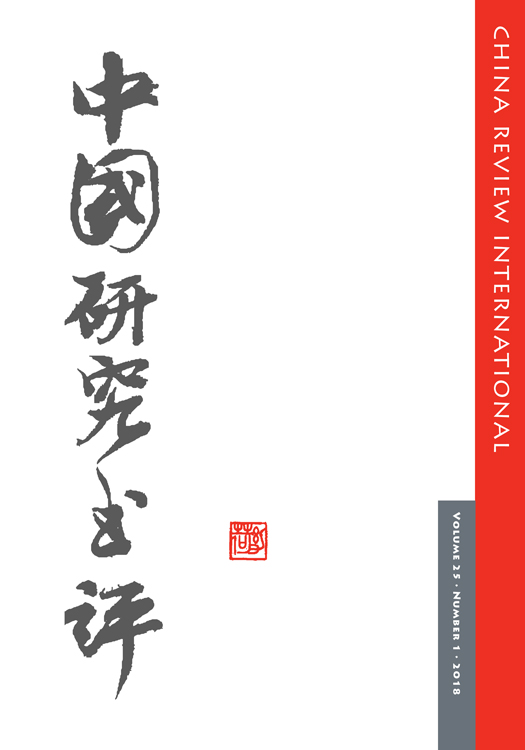
Vol. 25 No. 1
2018
Journal of World History, Vol 31, No. 1 (2020)
Special Issue
Liberal and Illiberal Internationalisms
Edited by Philippa Hetherington and Glenda Sluga
The twenty-first century is awash with diagnoses of the end of liberal internationalism. In both popular and academic manifestations, declarations of liberal internationalism’s ‘crisis’ tend to assume that the term has a stable meaning that is clearly differentiated from illiberal internationalist variants. The aim of this special issue of the Journal of World History is to interrogate this assumption. We argue that a historical view of internationalism highlights the interrelation between and the mutual dependence of liberal and illiberal internationalisms since 1880. Taken together, the essays collected here position the politics of internationalism at the centre of a new historiography that rejects an axiomatic relationship between the liberal and the international. They seek to rethink how liberal and illiberal cooperated, co-mingled and co-produced one another on the international plane.
Research Articles
Liberal and Illiberal Internationalisms
Philippa Hetherington, Glenda Sluga
Liberals, Socialists, Internationalists, Jews
Abigail Green
“Neither East Nor West,” Neither Liberal Nor Illiberal? Iranian Islamist Internationalism in the 1980s
Timothy Nunan
Urban Planning and the Politics of Expert Internationalism, 1920s–1940s
Phillip Wagner
The Crisis of Liberal Internationalism: The Legacies of the League of Nations Reconsidered
David Petruccelli
Constructing the ‘City of International Solidarity’: Non-Aligned Internationalism, the United Nations and Visions of Development, Modernism and Solidarity, 1955–1975
Ljubica Spaskovska
Liberal and Illiberal Internationalism in the Making of the League of Nations Convention on Broadcasting in the Cause of Peace
David Goodman
India, Apartheid and the New World Order at the UN, 1946–1962
Alanna O’Malley
Book Reviews
The Little Ice Age and the Demise of Rome: Lessons for the Anthropocene?
Roger L. Albin
Europe and the European Union in Times of Growing Scepticism
Martijn Lak
Barbed-Wire Imperialism: Britain’s Empire of Camps, 1876–1903 by Aidan Forth (review)
Mark Condos
Trading in Faith: Christianity and Globalization?
Philip Jenkins
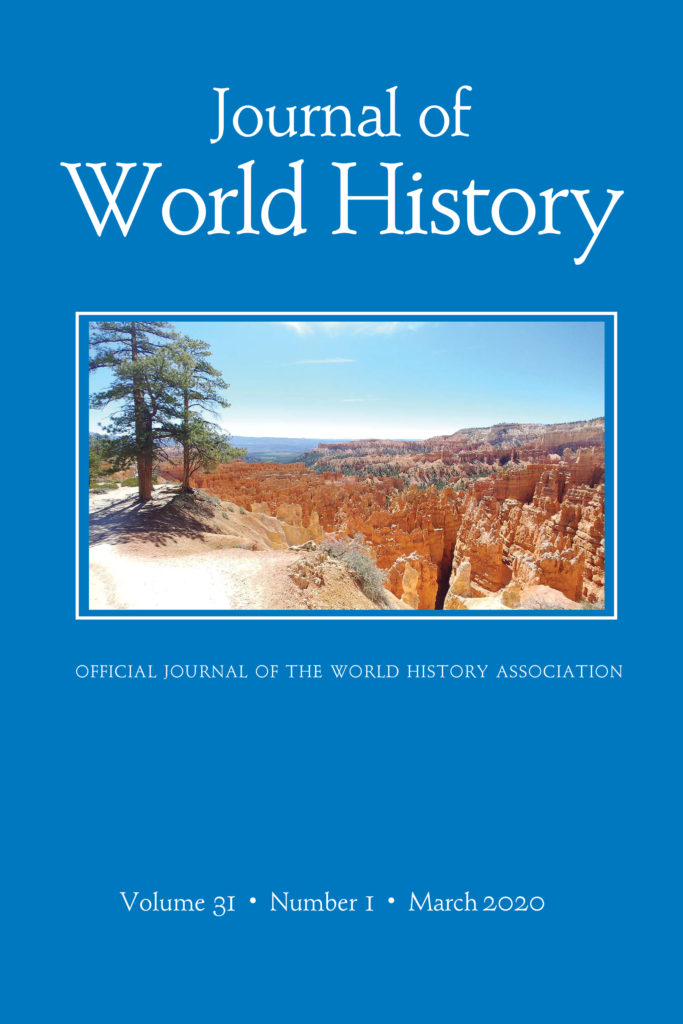
Vol. 31, Issue 1
Pictured on the cover: Bryce Canyon National Park in Utah, photograph taken in June 2019. The photograph marks a transition for the Journal of World History, highlighting Utah as the new home of the journal office as well as the site of World History Association annual conference in 2020. The image is a precursor of a complete cover redesign in 2021.
Philosophy East and West Vol. 70, No. 1
The first issue of Philosophy East & West’s 70th volume includes the following scholarly articles:
Articles
Eckhartian Neologisms and the Tathātā Framework: Istic/Isticheit in Conversation with The Awakening of Faith
John Becker
Dōgen’s “Leaving Home Life” (Shukke 出家): A Study of Aesthetic Experience and Growth in John Dewey and Dōgen
Jacob Bender
Is Free Will Confucian? Li Zehou’s Confucian Revision of the Kantian Will
Robert A. Carleo III
The Nondualistic Aesthetics of Qi 氣 in Antoni Tàpies’ Holistic Conception of Art
Mei-Hsin Chen
Wu-Wei, Merleau-Ponty, And Being Aware of What We Do
Marcus Lee
Sarvamukti: Sarvepalli Radhakrishnan’s Aporetic Metaphysics of Collective Salvation
Ayon Maharaj
The King’s Slaughterer—or, The Royal Way of Nourishing Life
Hans-Georg Moeller
Freedom of the Mind: Buddhist Soft Compatibilism
Rick Repetti
Virtue as Desire: Mengzi 6A In Light of the Kongzi Shilun
Boqun Zhou
Book Discussion
The Exclusion of Chinese Philosophy: “Ten Don’ts,” “Three Represents,” and “Eight Musts”
Carine Defoort
Intercultural Encounter in the Age of Hybridity: A Response to Eric S. Nelson
Mario Wenning
A Few Thoughts on the Possibility of Intercultural Thinking in a Global Age
Kai Marchal
Intercultural Philosophy and Intercultural Hermeneutics: A Response to Defoort, Wenning, and Marchal
Eric S. Nelson
Online Book Reviews
The Third Revolution: Xi Jinping and the New Chinese State by Elizabeth C. Economy (review)
Martin Schönfeld
Japanese Philosophy in the Making 1: Crossing Paths with Nishida by John C. Maraldo (review)
Bradley Park
Shen Gua’s Empiricism by Ya ZUO (review)
James D. Sellmann
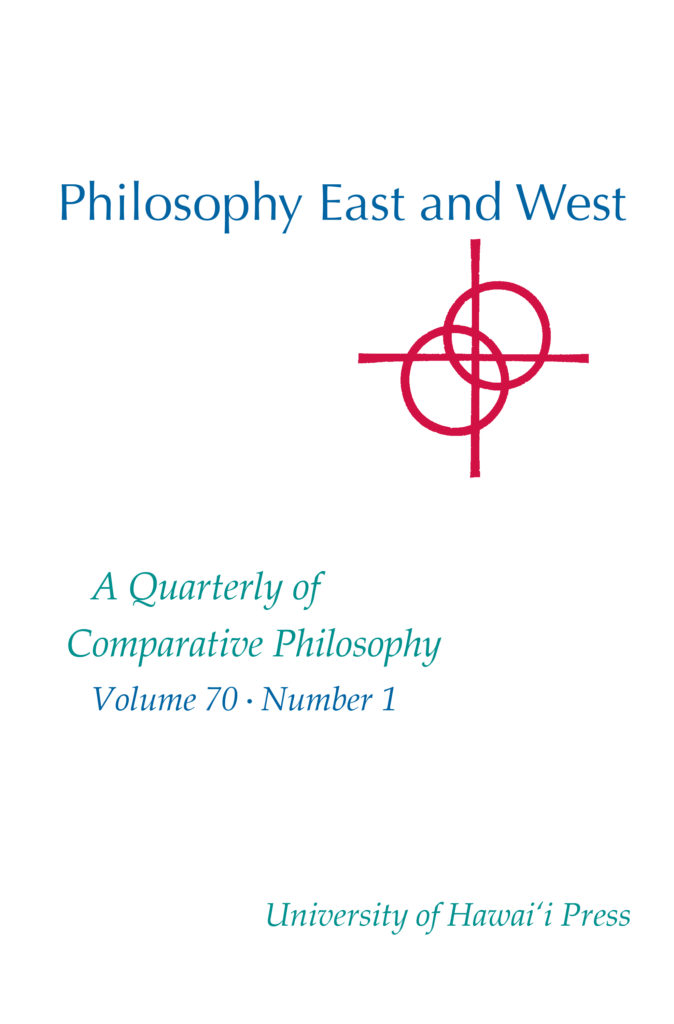
Vol. 70 Issue 1
Announcing Open Access for a new Pacific title!
University of Hawai‘i Press proudly announces the publication of its first born-digital, open-access monograph: JoAnna Poblete’s Balancing the Tides: Marine Practices in American Sāmoa, now available in both complimentary electronic and for-purchase print formats.
| Download an open access copy today! |
|
ScholarSpace |
About the Book
“Poblete’s Balancing the Tides is remarkable for its focus on the impact of U.S. federal policies in American Sāmoa. Whether she is discussing federal minimum wage debates or examining federal fishing regulations, Poblete shows how Americans and Sāmoans alike shape and are shaped by the forceful and sometimes flexible nature of U.S. federal marine-related management in American Sāmoa.” —Keith L. Camacho, UCLA
Balancing the Tides highlights the far-reaching influence of marine practices and policies in the unincorporated territory of American Sāmoa on the local indigenous group, the American fishing industry, U.S. environmental programs, and on global discussions about ecology and indigenous communities. Each chapter of the book highlights a type of ocean-use policy or marine-related practice in American Sāmoa to demonstrate how American colonial efforts to protect natural resources intersect with indigenous adherence to customary principles of respect, reciprocity, and native rights. Poblete’s study ultimately connects the U.S.-American Sāmoa colonial relationship to global overfishing, world consumption patterns, the for-profit fishing industry, international environmental movements and studies, as well as native experiences and indigenous rights.
More information on this project
“Balancing the Tides is sophisticated scholarship that investigates timely issues at the forefront of conversations in and outside of the academy,” said UH Press executive editor Masako Ikeda. “This makes it an especially well-suited book for OA; by making electronic copies available for download at no cost, we hope Dr. Poblete’s research about American Sāmoa will be more readily available to the people there, as well as to other important audiences, including policy makers and students.”
The first UH Press title to be released in OA prior to the print edition, Poblete’s book is produced through the Sustainable History Monograph Pilot, an initiative funded by the Andrew W. Mellon Foundation that seeks to develop a viable model for publishing high-quality scholarship in OA format by employing new production technologies. “The OA edition of Balancing the Tides is really a landmark event,” said interim director Joel Cosseboom. “It not only sets a precedent for OA publishing at UH Press, but also contributes to our goal of serving indigenous communities throughout the Pacific.”
Other UH Press titles forthcoming from the Sustainable History Monograph Pilot will address the histories of Vietnam, Korea, and Vanuatu. “My hope is that UH Press will soon be able to adopt the new technologies employed by this program to issue more OA publications, especially in Hawaiian and Pacific studies,” said Cosseboom.
The next SHMP title will be Alec Holcombe’s Mass Mobilization in the Democratic Republic of Vietnam, 1945–1960.
Journal of the Southeast Asian Linguistics Society – Papers from the Austronesian Formal Linguistics Association 25
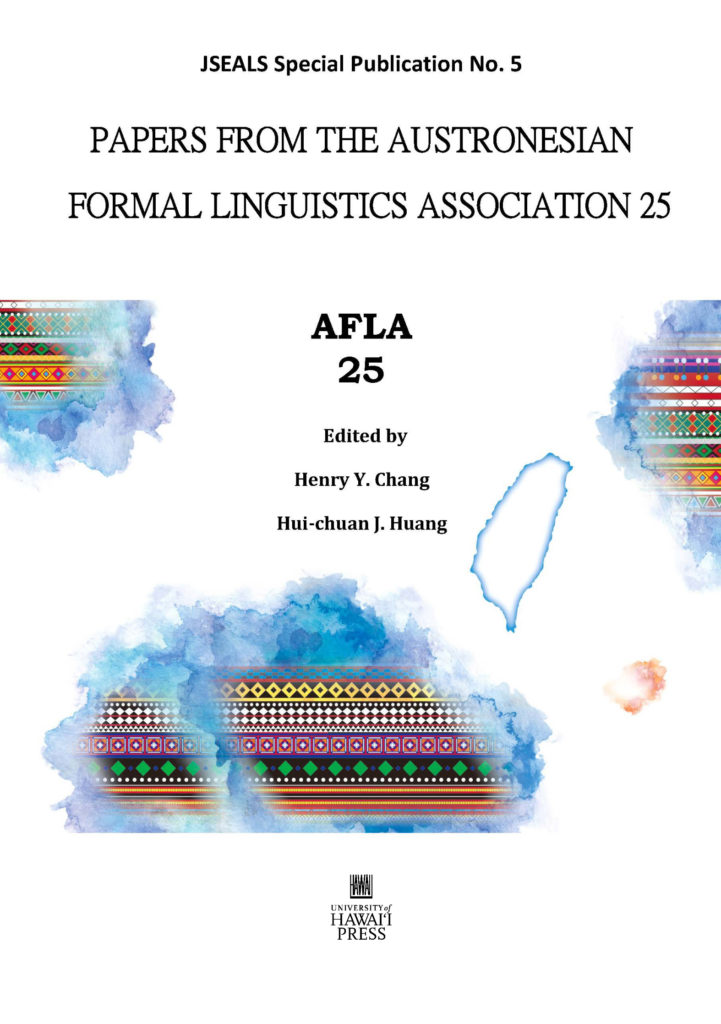
This special publication of the Journal of Southeast Asian Linguistics, edited by Henry Y. Chang and Hui-chuan J. Huang, grew out of the 25th annual meeting of AFLA held at Academia Sinica, Taiwan, 10-12 May, 2018.
Contributions in this volume cover a wide variety of topics in Austronesian linguistics. Chen and Jiang argue that in Bunun, -in- is an existential past tense marker while =in is a change-of-state marker at the discourse level, in contrast to the dominant view in the literature. Focusing on the prosody of Kanakanavu, Cheng spells out a number of phonological conditions and identifies the morphemes that could either attract or repel prominence. Socolof and Shimoyama propose a split ergative analysis of Māori genitive relative construction while showing that this construction is more widely distributed than generally described. Sommerlot’s article shows that the ber-V-nya constructions in Indonesian do not fit into any functions of these affixes in previous descriptions and they instead resemble a type of presentational-there construction. Tanenbaum adopts a syntactically-grounded account of Tagalog second-position clitics, based on obligatory V-to-C head movement. Wu explores the constructions of noun incorporation (NI) in Northern Paiwan, including both lexical and syntactic NI, and examines their morphosyntactic behaviors. Yang and Wong study how Malay məN- prefixation interacts with reduplication and propose a new markedness constraint against word-initial nasals to account for the data.
Ways of talking about the past: The semantics of –in- and =in in Bunun
By Sihwei Chen and Haowen Jiang
More on Kanakanavu word-level prosody: Cyclic and postcyclic processes
By Yi-Yang Cheng
The distribution of the Māori genitive relative construction
By Michael Socolof and Junko Shimoyama
A presentational construction in Indonesian
By Carly J. Sommerlot
Untangling the Tagalog clitic cluster
By Russell Tanenbaum
Two types of noun incorporation in Northern Paiwan
By Chunming Wu
Malay verbal reduplication with the məN- prefix
By Meng Yang and Deborah J.M. Wong





